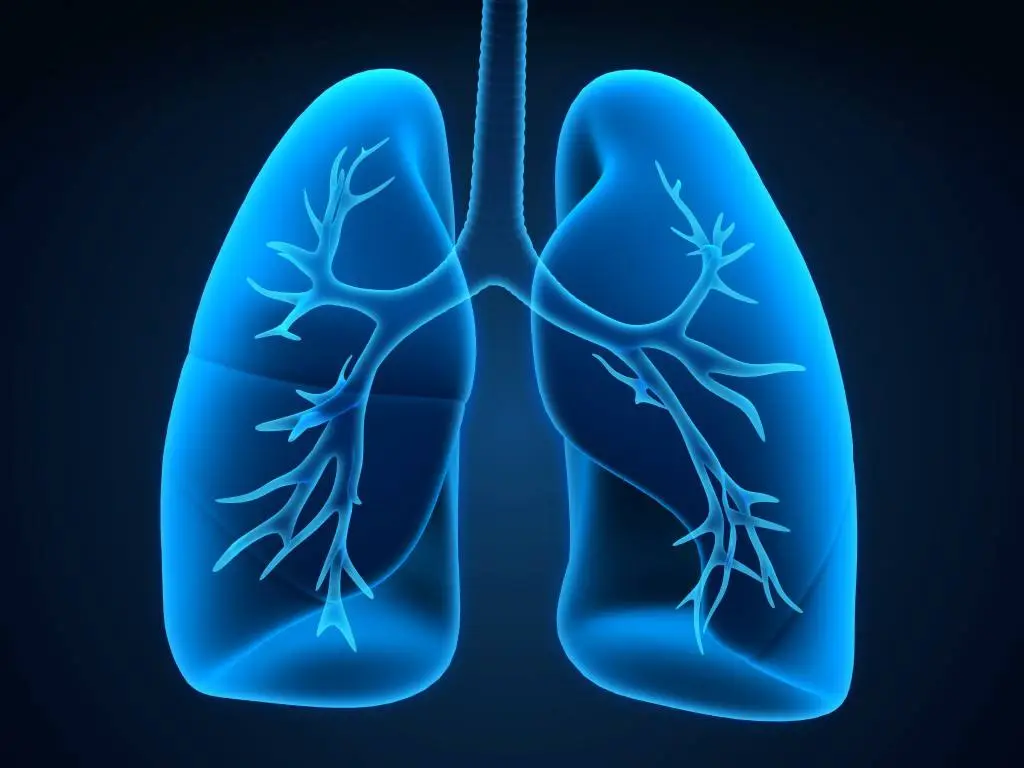
Introduction
The human respiratory system, a complex network of organs and tissues, plays an important role in sustaining life. Yet, many recognize the value of optimal lung health only when experiencing difficulty breathing. This comprehensive guide takes a holistic view of lung health, from its physiological significance to the myriad factors that can foster or challenge it.
Importance of lung health
respiratory system’s function in preserving life
Lung health holds a fundamental position in a person’s overall well-being. The respiratory system facilitates gas exchange, supplies vital oxygen to body tissues, and removes carbon dioxide as a waste product. Proper lung function supports energy production, physical performance, and a vibrant quality of life. Conversely, compromised lung health leads to shortness of breath, reduced stamina, and serious conditions such as chronic obstructive pulmonary disease (COPD) and lung cancer.
A deep dive into the respiratory system
Explore complex elements
Unraveling the complexities of the respiratory system sheds light on its remarkable functions:
1. Nasal passage and mouth: The journey of air begins with the nasal passage or mouth. In both pathways, air undergoes filtration, humidity, and temperature adjustment before entering the lungs.
2. Trachea: The windpipe, or windpipe, acts as a conduit for air to pass from the throat to the lungs.
3. Bronchial tubes: After tracheal division, bronchi emerge, branching into smaller bronchioles.
4. Alveoli: Terminal bronchioles develop into minuscule air sacs known as alveoli. The exchange of exhaled carbon dioxide and inhaled oxygen that occurs in these sacs supports living functions.
Factors Affecting Lung Health
Understanding the determinants of respiratory health
Numerous factors contribute to the condition of one’s lung health:
1. Smoking: Cigarette smoking stands out as a major cause of lung degeneration, leading to conditions like COPD and lung cancer.
2. Air Quality: Prolonged exposure to pollutants, allergens, and irritants in the air significantly affects lung health.
3. Infections: Respiratory infections, such as pneumonia and influenza, can cause considerable damage, especially among vulnerable populations.
4. Genetics: Some people may be more prone to diseases like asthma due to a genetic predisposition.
5. Physical Activity: Engaging in regular physical exercise increases lung capacity and overall respiratory efficiency.
6. Diet: An all-around diet rich in omega-3 fatty acids and antioxidants promotes better lung health.
Preserving and improving lung health
Techniques for optimal respiratory health
Strategies to protect and promote lung health include:
1. Quit smoking: If you are a smoker, it is most important to quit smoking. Avoiding secondhand smoke is equally important.
2. Sustained activity: Sustained physical activity strengthens the respiratory muscles and increases lung capacity.
3. Prevention of infection: Regular hand washing, timely vaccination against respiratory diseases, and good hygiene practices reduce the risk of infection.
4. Indoor Air Purity: Adequate ventilation and a clean indoor environment free of pollution are important.
5. Nutrient-Dense Diet: Prioritize fruits, vegetables, whole grains, and lean proteins, as these contribute to overall health, including lung function.
Common Lung Conditions: Understanding the Landscape
Explore various respiratory ailments
1. Asthma: A chronic disorder characterized by inflammation and narrowing of the airways, resulting in shortness of breath.
2. COPD: This includes progressive lung diseases, including emphysema and chronic bronchitis, often arising from prolonged exposure to irritants.
3. Lung Cancer: Irregular cell growth in the lungs, mainly associated with smoking, although non-smokers can also develop it.=
4. Pneumonia: Infection targets lung tissue, causing inflammation and compromising respiratory function.
Conclusion
In conclusion, understanding and prioritizing lung health is critical to overall wellness. The complex respiratory system plays an important role in sustaining life through gas exchange and tissue oxygenation. Maintaining optimal lung function contributes to energy, physical performance, and a high quality of life. Factors such as smoking, air quality, infections, genetics, physical activity, and diet affect lung health. We can protect and improve our respiratory health by adopting strategies such as quitting smoking, being physically active, maintaining indoor air quality, and eating a nutrient-dense diet. Awareness of common lung conditions like asthma, COPD, lung cancer, and pneumonia empowers us to take proactive measures. Tailoring Wellness: Personalized Treatment Plans
Unique lung health and patient-centered care
Each person’s lung health is as unique as their fingerprint. Dr. Mark Johnson, a pulmonologist renowned for his patient-centered approach, emphasizes, “Regular lung check-ups allow us to create personalized treatment plans.
Adapt strategies for evolving needs
What works for one person may not work for another, and routine assessments help us tailor therapies to the patient’s evolving needs.” Higher quality of life.
Breathe Easy: Mental and Emotional Well-Being
The mind-body connection in lung health
It is evident that mental and physical health are interdependent. Fighting lung problems can reduce anxiety, depression, and overall feelings of well-being. Dr. Lisa Adams, an eminent psychologist who collaborates with pulmonologists, says, “The mind-body connection is powerful.
Addressing emotional resilience
Regular lung check-ups not only relieve physical anxiety but also provide mental relief. Knowing you’re taking proactive steps toward your lung health can relieve anxiety and increase your emotional resilience.”
A Breath of Empowerment: Overcoming Fear
Facing fear for health empowerment
Fear of the unknown often becomes bigger than reality. Dr. Richard Lee, a pulmonologist with years of experience, observes, “Many people avoid lung check-ups for fear of bad news.
Knowledge as the Foundation of Proactive Living
However, facing these fears and being regularly evaluated can empower individuals to take control of their health journey.” Overcoming fear through knowledge is a victory in itself, and lays the foundation for a healthier, more active lifestyle.
For every breath you take: increasing longevity Impact of lung health on overall well-being Longevity is not just the number of years lived, but the quality of those years. Dr. Maria Rodriguez, a pulmonologist and geriatric specialist, emphasizes, “Lung health is instrumental in determining the trajectory of overall health as we age.